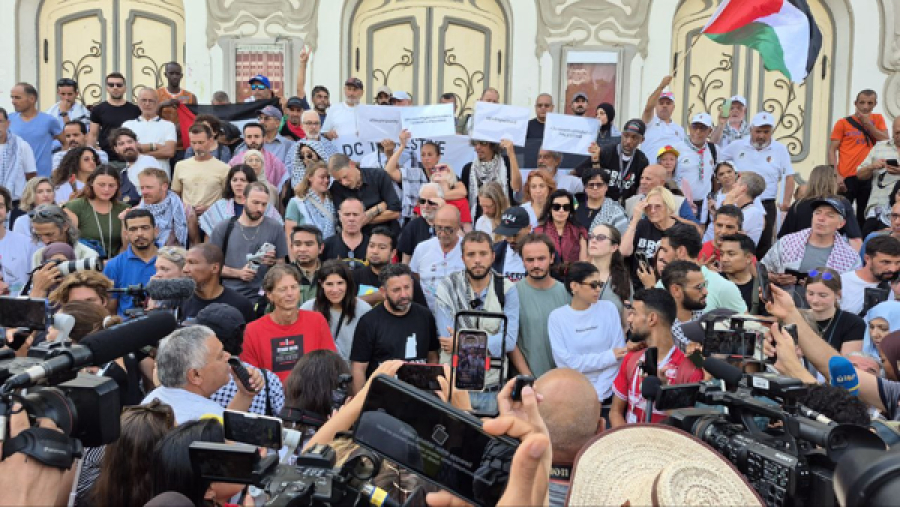The members of the caravan included a wide range of groups. Some Europeans were deeply dissatisfied with Netanyahu’s genocide, but their views differed from those of other members. Some believed in a “two-state” solution, in which the Zionist regime and the Palestinian state would live side by side. This view was in contrast to the view that saw Israel as an “occupying regime” that must be destroyed. Sayyah Taheri added: “Even some Israeli leftists who opposed Netanyahu were in contact with the members of the caravan and sent messages that Iran, Yemen, and Lebanon should not be in this group.”
This request clearly showed that they wanted to present this movement as completely popular and European, so that the Zionist regime would have no excuse to attack them. Sayah Taheri said: “They were worried that if there was even one Iranian in the caravan, Israel would claim that this movement was not popular and was led by the axis of resistance. This made them even ask us not to participate in the trip.” This point itself indicates the political and strategic complexities of this movement.
These differences of opinion, on the surface, were not a problem, but in practice, they caused doubts among some European members of the caravan. They did not want to enter into an armed conflict and hoped that they could reach a conclusion through public pressure and diplomatic measures.
But perhaps the biggest and most dangerous reason for the delay was the political pressure from the United States and Saudi Arabia on the Tunisian government. Security problems for the Tunisian government had become a serious concern for Tunisia due to the Israeli regime’s drone attacks on the port of Sidi Bou Said near the presidential palace. The threats from the United States frightened the Tunisian government. Tunisian security officials were concerned about the lives of the country’s leaders. After the attack on Qatar and the attacks near the presidential palace, concerns reached a peak and they concluded that Israel would stop at nothing to stop the convoy and might attack Tunisian officials.
In the meantime, Saudi Arabia also stepped in and put pressure on the movement to stop it. But the Tunisian people responded to this pressure with force. Every day, demonstrations and sit-ins were held in front of the US embassy in Tunis to protest US policies and show that they stood by the people of Gaza. Sayyah Taheri says: “The Tunisian people sent a clear message to their government and the international community with their daily demonstrations and sit-ins. That we are standing. This popular will was stronger than any diplomatic pressure or security threat.”.
Maryam Sadat Ajoudani


















